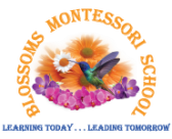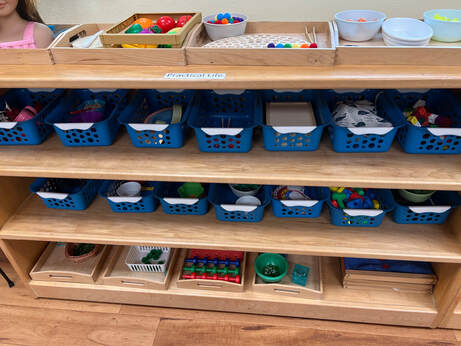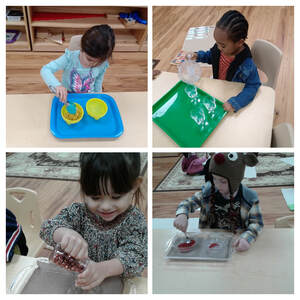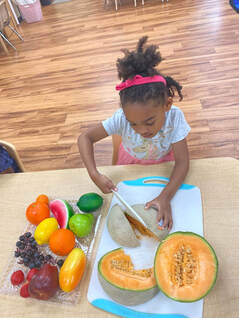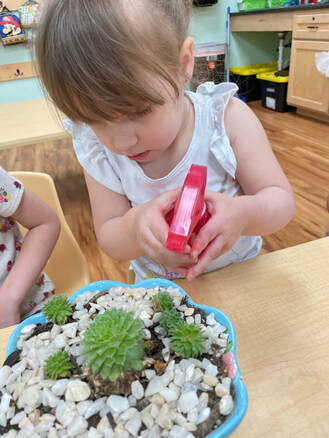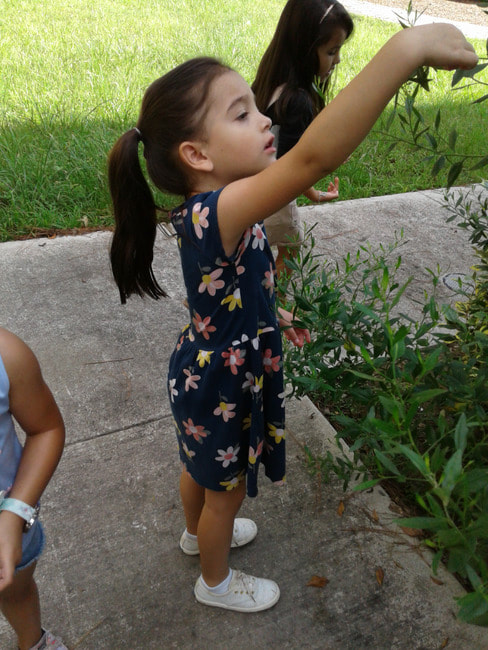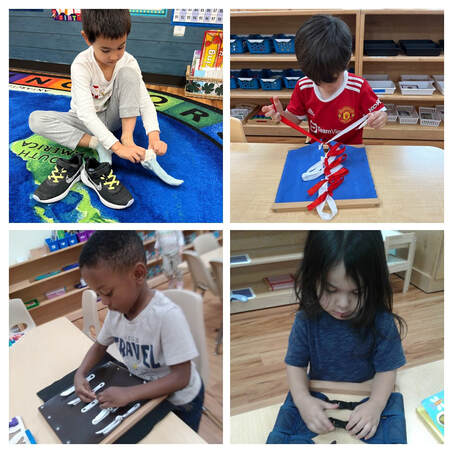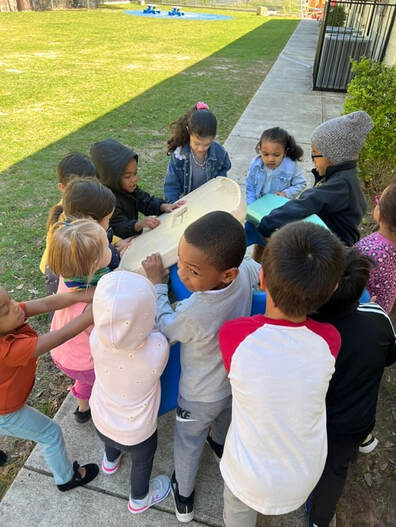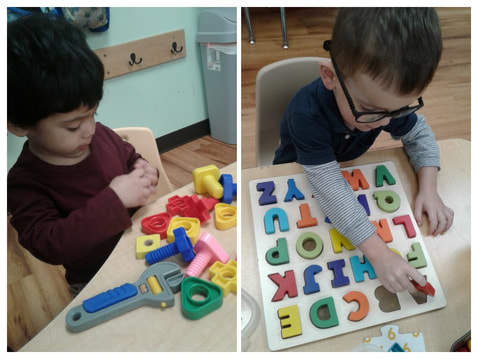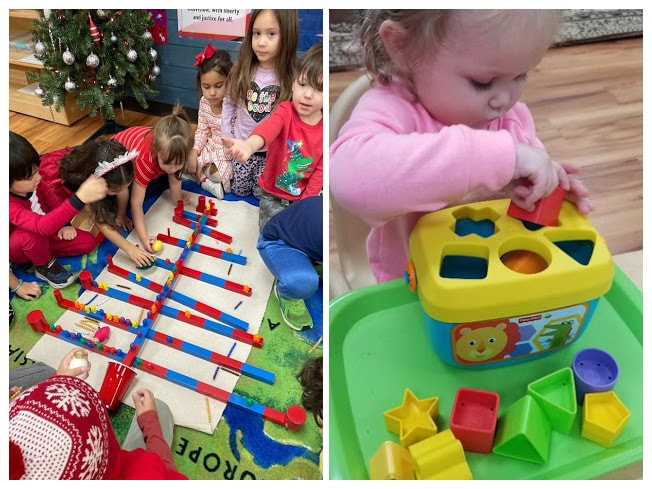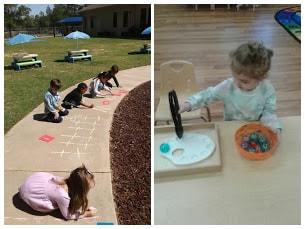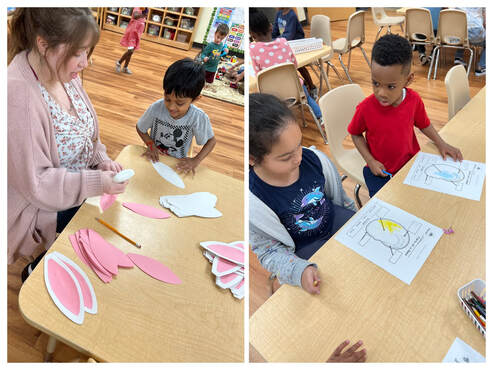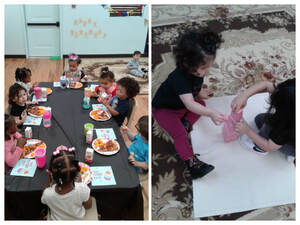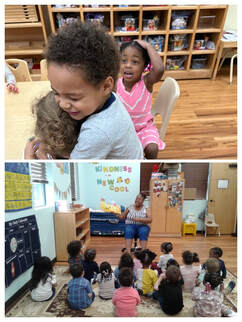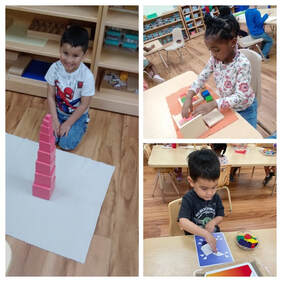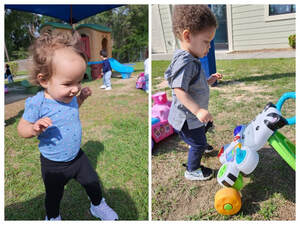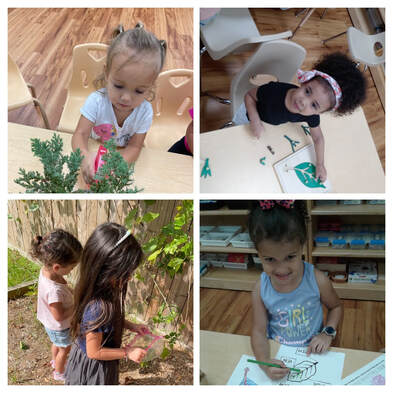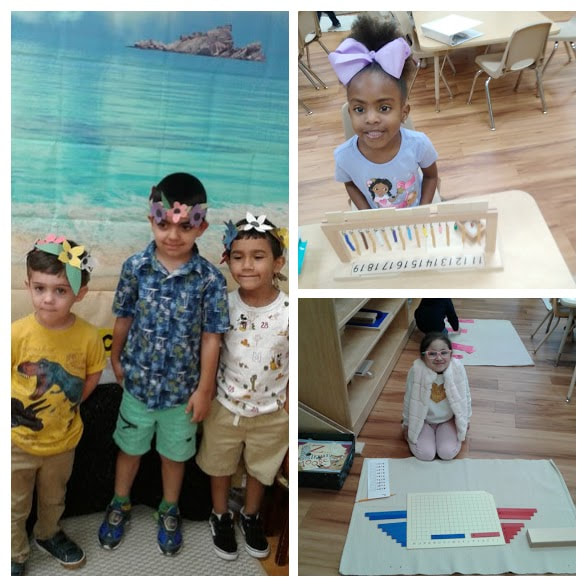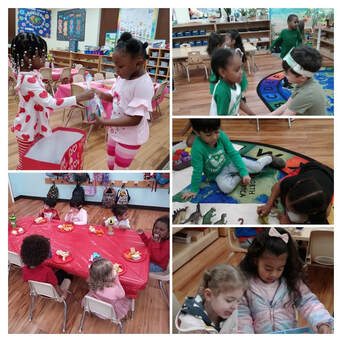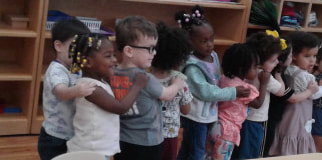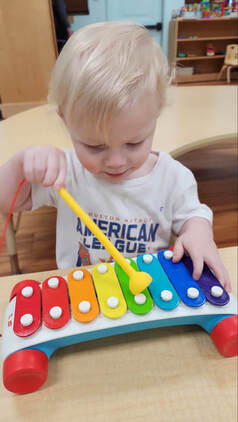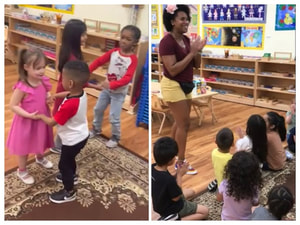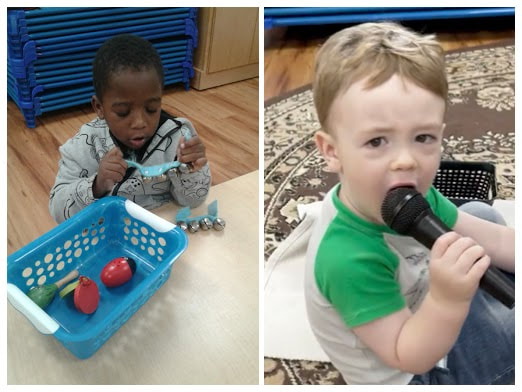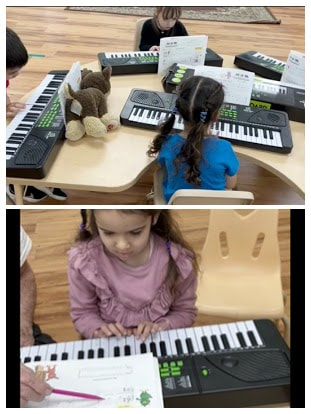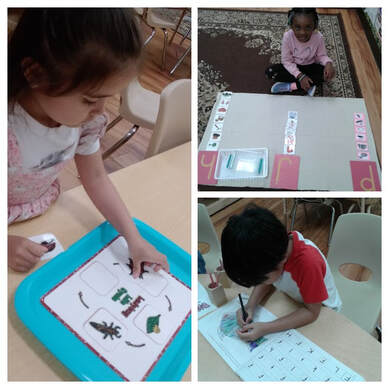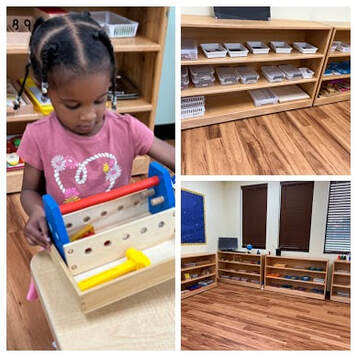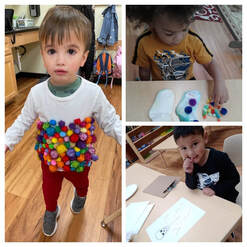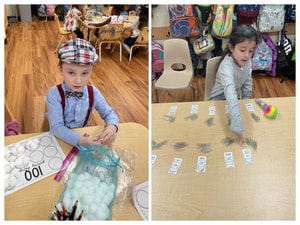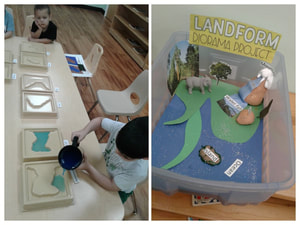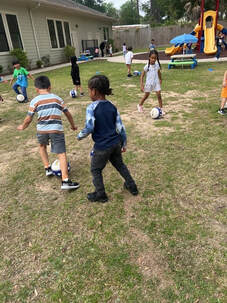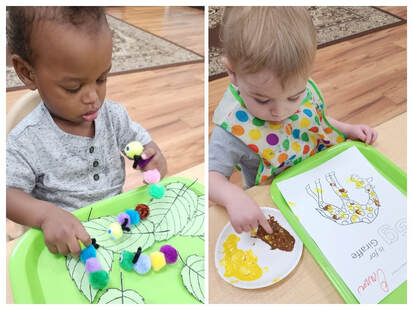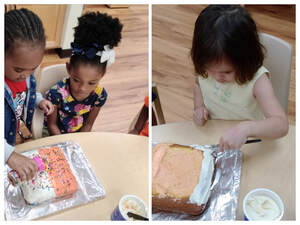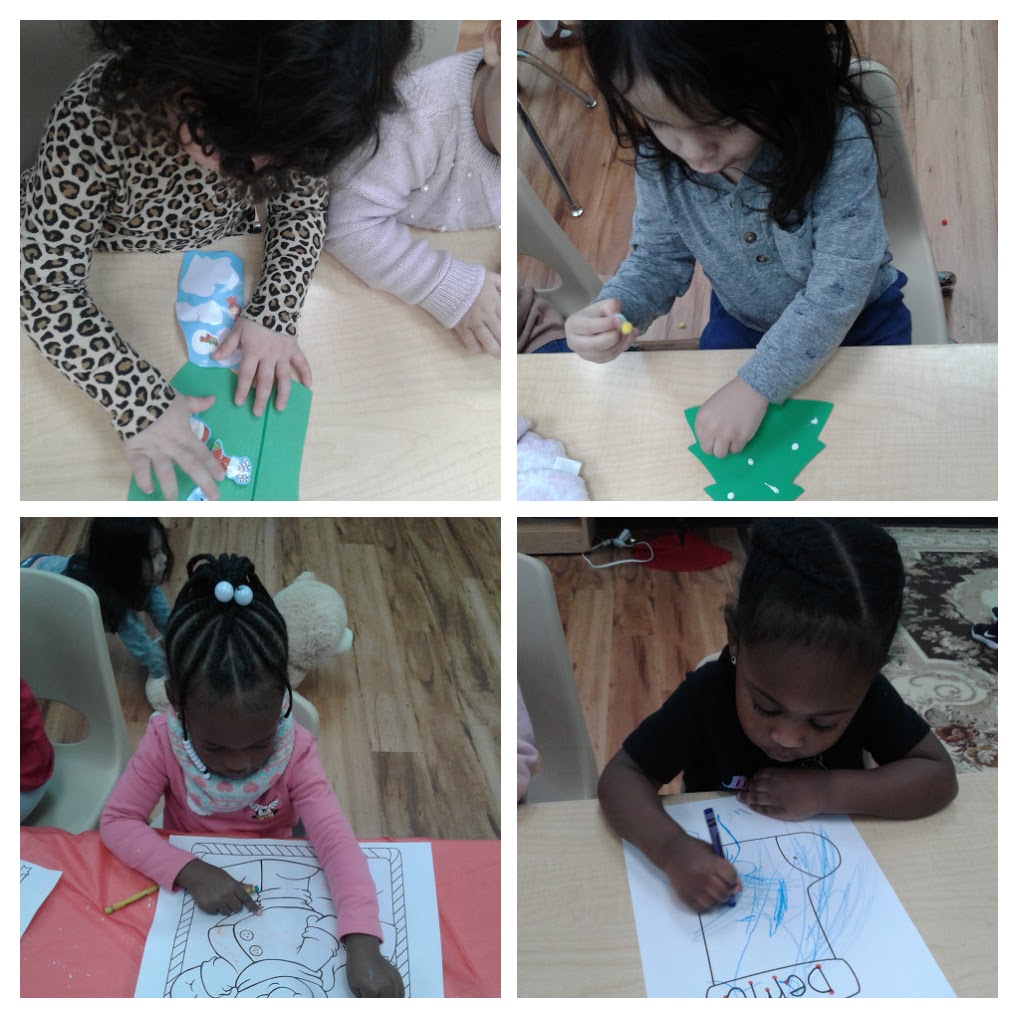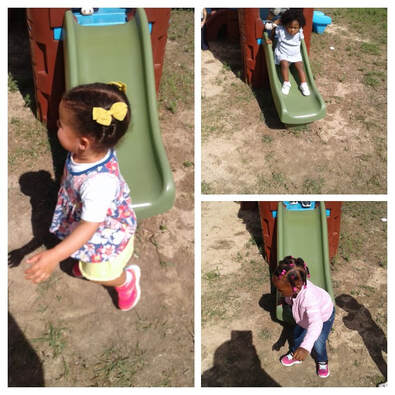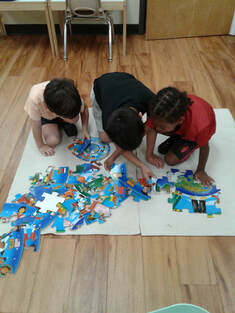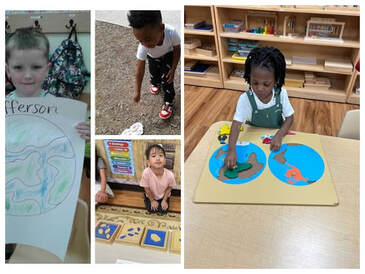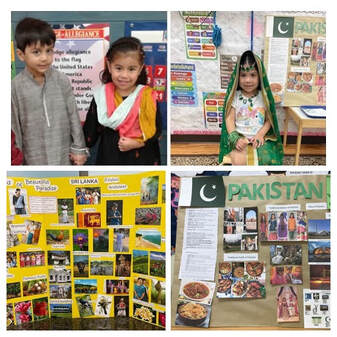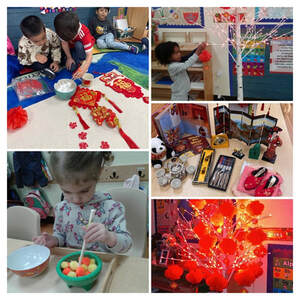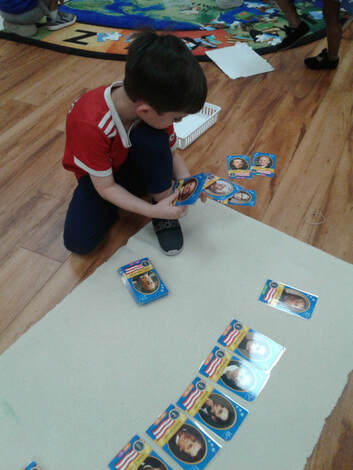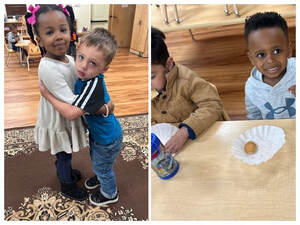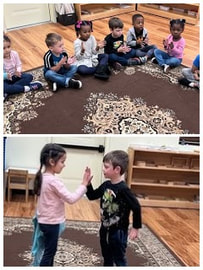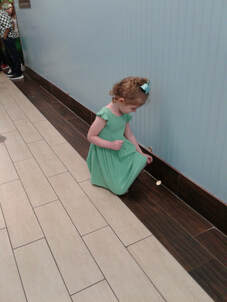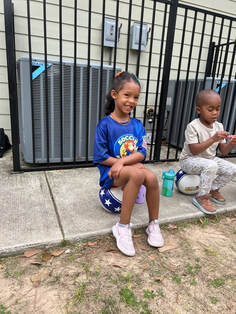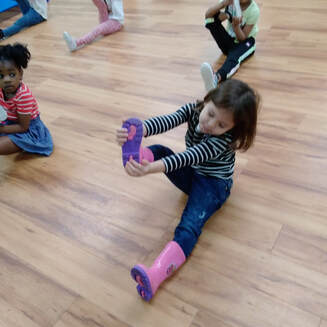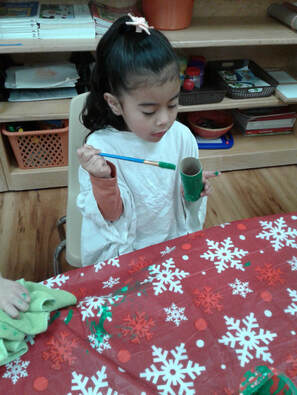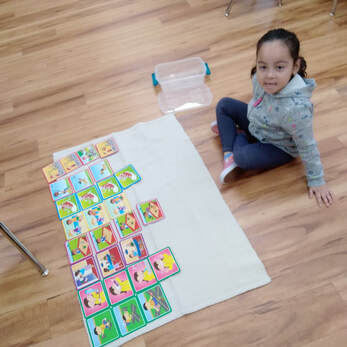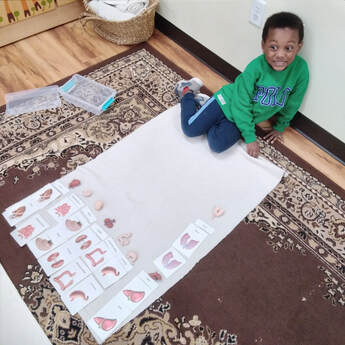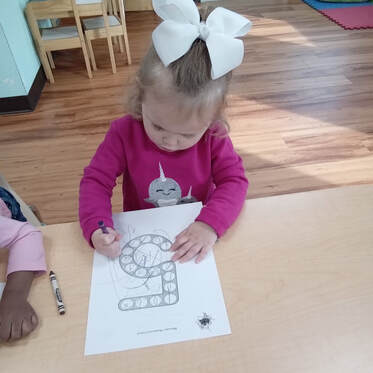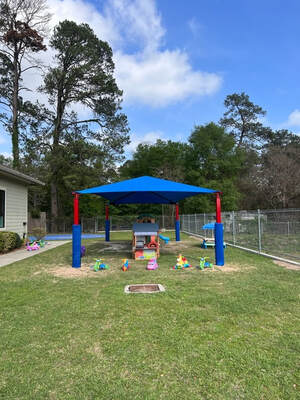|
Math and language are important. But so is learning how to dress up in the morning and doing household chores. In real life, people have to cope with everyday home activities. It’s best for children to start learning practical skills while they are still young. Along with academic pursuits, our Montessori preschool teaches children the value of practical life activities. What Are Practical Life Activities? Dr. Maria Montessori noticed that children prefer to do chores with adults rather than play with their toys. That’s why practical life activities are among the first lessons children will learn at Montessori. Our Montessori daycare classroom at Blossoms Montessori School doesn’t look like a traditional one. There are no armchairs or desks that are perfectly lined up and facing the front. There are learning materials all over with large tables, chairs, and a large classroom to give children as much space as they need to learn, especially when it comes to real-life activities. Practical life activities aim to make children independent. There are four basic practical life lessons: preliminary exercises, care for the environment, care for the person, as well as grace and courtesy. Preliminary Exercises At Montessori childcare, students are encouraged to learn basic activities that hone their fine motor skills for more challenging activities. Among the exercises are sorting through objects and stringing items. They are also taught to keep their things after use. Every day, Blossoms prepares healthy snacks for children. As part of their lessons, they are taught to prepare their snacks by properly spooning food and pouring drinks. Care for the Environment Caring for the natural environment starts with caring for your surroundings. Children will learn the importance of keeping their environment clean. Activities include sweeping and dusting the classroom. Children are also encouraged to perform common household chores such as preparing their food, washing dirty dishes, and drying them after. Care for the Person Montessori aims to make children more independent. At a young age, they are taught to dress properly and tie their shoelaces. Children also learn to wash their hands regularly, especially after activities and before eating. They also receive lessons on nutrition. Grace and Courtesy Learning good manners prepares children for social settings. They are taught polite communication skills, table setting and manners, and basic considerate activities, such as walking slowly, moving furniture silently, and closing the door properly. At Blossoms Montessori School, your children have the opportunity to not just engage in intellectual endeavors. They are also taught practical everyday skills that will serve them well and support their holistic development.
0 Comments
What is the Montessori preschool philosophy? It’s about rigorous and self-motivated growth for children in all areas of their development– social and emotional, language and communication, movement and physical development, and cognitive. Montessori aims to nurture a child’s desire for knowledge, respect, and understanding. Nurturing a child’s quench for learning isn’t about spoon-feeding or dictating their lessons. It’s about guiding them but giving them the independence to pick what to learn and the pace of doing so. Let’s look at the developmental areas and how Montessori education encourages children to achieve the necessary skills for growth. Social and Emotional In traditional classrooms, students are separated by grade level, usually according to age. There is a sense of community in Montessori childcare because students of different ages share the same classroom for two to three years. Ages usually differ by two to three years. The Montessori method focuses on independence and practical studies rather than just moving on to the next grade level. Because children stay with the same group for at least two years, they will develop a kinship and build relationships. They learn social and emotional skills through their shared space and materials. They also learn camaraderie and teamwork during collaborative play. Language and Communication Every day is a lesson in language and communication. In Montessori, there is an added benefit of learning grace and courtesy. Communication skills are necessary for achieving grace for yourself and courtesy to other people. Knowing how to talk with respect and politeness is vital to the growth and development of personal relationships. Movement and Physical Development Movement is crucial in the daily life of every Montessori student. For one, they have the freedom to choose the materials they work on for the day, which involves going to and from the shelf to obtain them. Two, sensorial learning entails a lot of physical activities as children are educated through experience. Three, music is also a big part of the curriculum, as is dancing. Play is also integral in Montessori, with children enjoying both free and collaborative play. Cognitive Lastly, students learn something new daily, from math to science and nature, botany to cultural studies, and more. But the best part is that children learn at their own pace. They are not forced to understand lessons they are not ready to; hence, they are not pressured or stressed at school. Visit Blossoms Montessori School in Spring, Texas, to check out the facility and learn more about Montessori daycare.
The core concept of grace and courtesy is respect for oneself and others. But its impact on life is so much more than that. Grace and courtesy allow us to be sensitive to the needs of others and well-liked members of society. This is why Blossoms Montessori School considers grace and courtesy as indispensable aspects of our Montessori preschool curriculum. What Are Grace and Courtesy? Though they aren’t focus areas of many traditional schools, grace and courtesy are innate in Montessori childcare. Grace is defined as self-awareness and the ability to conduct oneself with dignity and refinement. Courtesy, on the other hand, involves showing respect and valuing other people’s needs. The two go hand in hand. When you show respect and act with grace, it is much easier to form relationships, get ahead in life, and be a productive member of society. At Blossoms, grace and courtesy are part of the Practical Life curriculum. Our lessons include walking carefully, table setting and manners, how to host a guest, and more importantly, communication skills. Learning these practical skills allows children to be more independent and develop their social skills. Physical activities are also vital in developing motor skills. Common Grace and Courtesy Lessons Our Montessori daycare starts with the basics. As soon as children grasp the essentials of grace and courtesy, these traits become a natural part of their character. The following are some of the simple grace and courtesy lessons we teach. To teach grace, we have children: ● Stand in a queue ● Choose an activity ● Use learning materials gently ● Keep educational materials back in place after use ● Walk in the classroom properly ● Use the restroom courteously ● Eat meals neatly To teach courtesy, children are asked to: ● Welcome someone ● Greet another person ● Ask questions politely ● Shake hands ● Talk in a soft voice ● Discuss disagreements ● Excuse themselves These are simple activities but as they grow older, children can be expected to practice the same propriety on a much larger scale. They will move around with grace, earning the respect of their peers. They will also go about their day being polite to people, and receiving politeness in return. When they learn these at a young age, they grow up with manners and develop confidence in the process. Blossoms Montessori School can guide your children to become better individuals who act with grace and courtesy. Visit our daycare in Spring, Texas.
Music helps with the brain development of a child and is, in fact, recommended for babies even before birth. According to the United Nations Children’s Fund (UNICEF), listening to music when you are pregnant can positively affect the baby. As the child grows older, music also stimulates school readiness. The same UNICEF’s report stated that music could help a child with their language and reading skills. Learning to play a musical instrument also impacts a child’s mathematical skills and overall test scores. With all these benefits, it is no surprise that music also plays an essential role in Montessori preschool education. There’s an Inner Rockstar in Every Child Blossoms Montessori School inspires children to bring out their inner rockstar in every Music and Movement program. Blossoms Montessori daycare uses music in early childhood education, following the Montessori principle of learning through experience. With music, children are also encouraged to move and it is the Montessori way to encourage children to use all five senses in learning. As Dr. Maria Montessori said: “It is movement that interests the child in music, and it is by movement that the very tiny child can arrive at understanding music with considerable delicacy.” Benefits of Music and Movement in Development Music sets the mood for various activities. When there is a soothing sound on, children are instantly relaxed. If it’s upbeat, then children are prompted to move with it. Movement is essential in preschool children as they are still learning the various ways, they can use their bodies. Through movement, they educate themselves on how to utilize their body amidst the space given to them. When you add fast music to their activities, they are encouraged to move to the rhythm and dance to their heart’s content. It makes them happy, and dancing with other children encourages camaraderie. Since various studies link movement with increased memory and perception, Montessori childcare focuses on music and movement at school and home. Blossoms Montessori School in Spring, Texas, provides a nurturing place for children to rock on and learn. Children will be exposed to a holistic curriculum that includes math, science, nature, and practical and cultural studies.
The essence of every Montessori preschool student is independence. Most parents think children must become independent at 18, but autonomy is more than just living alone. Independence is the ability to do things by yourself and make decisions for yourself without the influence of other people. Children are capable of being independent; in fact, as Dr. Maria Montessori believed, it is in their nature. Montessori education fosters that independence. Child-Centered Learning Traditional classrooms would have teachers discussing lessons in front of the students and telling them the activities they should do. At a Montessori daycare, children have the freedom to choose what they want to learn. Not all children are the same, so they must have the awareness to pick a material that they are comfortable with. There are many educational objects and materials inside the classroom, which is why Blossoms Montessori School has ample space and plenty of shelves to store them. Everything is within reach so that children can have access to all materials. Teachers are there to facilitate learning and guide the children through the process. They do not dictate what specific lessons children should devour since each individual has different pacing. Therein lies the advantage of Montessori education- children are not forced to learn something they are not ready for. Creativity The more children are encouraged to choose their path, the more they become creative. This is highly encouraged as children enjoy the learning process and the result is not the focus in Montessori childcare. In traditional classrooms, students compete for high grades. With Montessori, it’s about perfecting the process and completing tasks. By doing so, it becomes a natural path for creativity among students. Building Relationships
Being independent doesn’t mean being alone. Autonomy is more about self-awareness and self-discipline. Montessori encourages collaboration among students through mentorship and cooperative play. It is common at Blossoms for older children to help the younger ones with more difficult activities since they share one space. The students also play together, which prompts camaraderie and teamwork. Social relationships are vital to one’s independence. There is a balance of academic work, practical life, and play at Blossoms Montessori School in Spring, Texas. Visit us and check out our exceptional facility. According to Harvard University, healthy development during the first three years of a child’s life are instrumental in educational attainment, economic productivity, and the successful parenting of the next generation. Undeniably, early childhood education is vital for healthy development. It equips children with the social and mental skills they need to succeed in the next phase of growth. Montessori Preschool The first few years of school are vital in the development of children. Montessori teaching provides a framework for children’s developmental milestones in various aspects of life be it in cognitive or linguistic skills or their physical, emotional, and social interactions. At Blossoms Montessori School, we have various Montessori childcare programs for children between 12 months and six years old. The programs are tailored to fit their developmental phase. At three years old, children are still honing their motor and language skills. Montessori programs ensure that adequate focus on these aspects prepares children for the next step. At four, they are ready to complete tasks and Blossoms has enjoyable activities like culinary as well as arts and crafts to serve this purpose. As children get older, our Montessori daycare strives to continuously give children new experiences from inside the school, through special events, and trips. Holistic Development UNESCO refers to early childhood care and education as an “investment in well-being and lifelong learning.” This means that any educational program must stretch beyond academic pursuits. Montessori principles support this idea by promoting independence and cooperative play. Children are encouraged to learn at their own pace. There are various educational materials that students can choose from while the teachers are there to guide and encourage the process. This is wonderful preparation for children who inevitably have to make their own decisions when they are older. They learn practical responsibilities too. They are taught how to clean up after themselves and to take care of the environment. Since life is also about relationships, cooperative play is encouraged to develop children’s social skills and sense of community. Blossoms Montessori School in Spring Texas is the perfect place for early childhood education with its holistic curriculum that prepares children for the real world.
We live in a big world, and learning about it may be daunting. But a Montessori preschool is about sensorial learning- where children experience the lessons in a fun and exciting way. Geography- the Montessori Way At Blossoms Montessori School, children have a more tactile understanding of geography. The school provides Montessori geographic materials that students can manipulate to better understand the world, including globes, continents’ puzzle maps, and other land formation materials. The main advantage of sensorial learning is that it helps build nerve connections in the brain’s pathways. Sensory play also encourages brain development and makes it easier for students to remember their lessons. They can remember geography well because they can visualize it and remember how it feels to touch it. Culture An integral part of geography is culture. Cultural studies are also an essential part of Montessori daycare learning. Children are taught about diversity and exposed to the different colors and languages of the world. At Blossoms in Spring, Texas, the students enjoy Culture Awareness Activities and Presentations to make cultural lessons memorable. Through these activities and presentations, they learn not just about where specific countries are but what distinct cultures offer to the world in terms of food, music, clothing, and other products. Multicultural students are also encouraged to embrace their ethnicity. Multilingual students are supported; Blossoms has bilingual teachers as Spanish, the second most widely spoken language in the U.S., is part of the curriculum. History
History is also elemental to geography. The concept of how the world was created and the origin of mankind are introduced to children through fascinating materials. Then, there is a gradual introduction to some of the most significant historical events that took place in our country and in the world at large. In Montessori childcare, History is all about learning a sequence of events- essentially. Montessori lessons are about interrelation and order, so students are encouraged to complete tasks rather than get high grades. Completion of responsibilities is also about one’s pace and not speed. Montessori is a purposeful academic practice that benefits children in their formative age. Visit Blossoms Montessori School in Spring, Texas now, or click here to learn more about it. In many instances, people are indifferent to major achievements but are quick to notice minor failures. It follows that achievements are often ignored while missteps are punished. But many studies including a publication on Behavior Modification state that “positive reinforcement works exceedingly better and faster than punishment.” What Is Positive Reinforcement? Positive reinforcement is behavior modification that introduces a positive stimulus to encourage good behavior. It is a technique that is often recommended for parents as opposed to punishing children who have done bad things. The positive stimulus can be simple praise like, “good job,” to children who did their assignments or completed their chores. It can also come in the form of rewards which is common when children visit the doctor — most pediatricians give children goodies at the end of the consultation. Positive reinforcement works because it makes the child feel loved and it develops self-esteem. It can also mold their character because they are taught good behavior through positive words and rewards at an early age. The following are some examples of positive reinforcement: ● Clapping ● Cheering ● Giving high fives ● Giving a thumbs-up ● Praising children ● Rewarding children with special privileges, treats, etc. ● Hugging ● Patting their backs ● Telling people how proud you are of your child The Montessori Way
Our Montessori preschool follows the teachings of Dr. Maria Montessori. She emphasized autonomy and self-motivation in children’s learning. Her techniques are based on personal observations that children teach themselves through what they see in their environments. The approach entails trusting children so that they can grow up to become independent learners. Throughout the process, Montessori childcare teachers are there to guide them. The lesson is to develop self-confidence and the Montessori way is designed to cultivate it from an early age. When you cheer them on or give them a thumbs-up for doing something good — even if it’s for something simple like keeping their coloring materials or brushing their teeth properly — they become excited. Knowing how proud you become when they do something well will make them strive to do even better. At our Montessori daycare, children confidently go about their day and select the materials they want to work on. Teachers motivate them to complete their tasks and encourage them to move on to more challenging endeavors. See how we use positive reinforcement and encouragement by booking a tour of our facilities and meeting with us personally. Executive functioning skills are a set of brain functions that allows a person to organize and complete tasks. People are not born with them; they are learned. This is why Blossoms Montessori School makes it part of its learning experience for children. To understand the importance of these cognitive processes, let us go through eight essential ways it affects our daily functioning. 1. Self-Control Self-control refers to a child’s ability to pause and think before doing something. Children who have self-control are more organized with their tasks, which means responsibilities and assignments are done correctly. They are not disruptive in class and teachers do not have to tell them twice to do or stop doing something. 2. Self-Monitoring Self-monitoring allows a child to evaluate one’s actions. Through self-monitoring, children can gauge if they need help with an activity. They know their strengths and weaknesses. 3. Flexibility Flexibility refers to children’s ability to adapt to changes and thrive despite ambiguity. Children must not be coddled so they can learn how to adjust to different situations on their own. 4. Task Initiation Children with this skill can complete their tasks independently and without procrastination. These students are never late with school projects. An inability to initiate tasks can result in anxiety, feelings of being overwhelmed, and leaving chores unfinished. 5. Working Memory Working memory is being able to retain necessary information and follow directions. Children with working memory are attentive and not easily distracted. At our Montessori daycare, children are free to select their activities so they can hone their working memory. 6. Emotional Control Managing one’s feelings is vital. Children with emotional control can bounce back more quickly when disappointed. They spend less time sulking and enjoy more meaningful and long-lasting relationships. 7. Time Management When given assignments, children with time-management skills do not meander. They plan and organize their thoughts and tasks to complete their projects on time. 8. Organization
Organization refers to the ability to maintain a system that allows a person to keep track of the things he or she needs to achieve a goal. The learning materials and projects at our Montessori childcare encourage students to learn and be organized. Organized students know where things are stored and know how to put items back in their original places. |
Blogs
Author
As a highly experienced Montessori educator with a coveted AMI credential from Association Montessori International, I have spent over 22 years helping children discover their full potential through an individualized approach to learning. Along the way, I have mentored and coached countless educators, equipping them with the tools and techniques to foster growth in their own students. In fact, I have trained over 65 teachers to date. Currently serving as a Director, I bring a wealth of knowledge and expertise to every aspect of my work. Whether you are a parent seeking the best educational opportunities for your child or an educator looking to improve your own practice, I am confident that I can help you unlock your full potential. Archives
June 2024
|
Contact Us
|
|
| Child Care Learning Center | Daycare Center |
Blossoms Montessori School All Rights Reserved.
